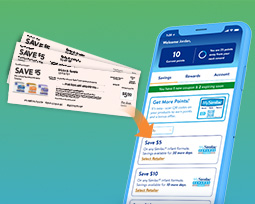-
Search
-
Login
-
My Cart
During the first 4 weeks, many women haven’t discovered that they’re pregnant yet. But even though you may be unaware, there are some important things happening in your body during this time.
The Countdown Begins…but When?
The journey through pregnancy begins from the first day of your last normal menstrual period—even though fetal development doesn’t begin until conception. This is called the gestational age. Fetal age is the age of the actual growing fetus. Most references to pregnancy are in gestational age. Because the actual time of conception can be difficult to determine, this creates a more standardized way to keep track of a pregnancy.
Eating and Exercising
After your last normal menstrual period, your body is preparing for pregnancy. During this time, it’s important to get the nutrition and exercise your body needs. During pregnancy, you have greater nutrition needs, so it’s important to eat a healthy, balanced diet, which includes a prenatal vitamin to meet some of the higher nutrient demands, such as iron and folate. Refer to our prenatal nutrition guide for more information about nutrition during pregnancy. The recommendation is to take a prenatal vitamin while trying to conceive. Talk to your doctor about the best prenatal vitamin they recommend for you based on your needs. Taking a vitamin/mineral supplement with folic acid prior to conception reduces the risk of neural tube defects. It is a good idea to start taking a prenatal vitamin if you were not already using one prior to conception. ChooseMyPlate.gov is a good resource for building a healthy diet plan for your pregnancy.
If you start your pregnancy feeling fit and continue to exercise accordingly, it can help with energy levels, mood, and overall health. Exercise plans that you routinely perform should be fine to continue throughout your pregnancy—with a few exceptions. The American College of Obstetricians and Gynecologists (ACOG) has some good recommendations for exercising during pregnancy. Focusing on the muscles in your lower back and abdomen may be particularly helpful. Check with your doctor before beginning a new exercise routine or with any questions regarding your current exercise routine.
Your Tiny, Tiny Baby Is Developing
It all starts with your egg uniting with a single sperm and forming a single cell, called a zygote. The zygote develops at an astounding rate—dividing and doubling within 2 days. By the end of the fourth week of gestation, your baby has already grown to the size of a pinhead—about 1/25th of an inch—and the sex has already been determined. By the fourth week of gestation, many moms can get a clear positive on a urine pregnancy test.
Well, technically you were pregnant before week 5. But by this time, you may have missed or were late on your period—so it’s around week 5 when women often suspect that they’re pregnant. As a result, they’ll take a pregnancy test to find out for sure.
First Prenatal Appointment?
If you believe you’re pregnant, the first thing you should do is schedule an appointment with a doctor. Be sure to download and complete this Prenatal Checklist(PDF, 77 KB) to take with you on your first visit. Most OB-GYN offices will schedule the appointment between weeks 6 and 10 of your pregnancy, so don’t be discouraged if they don’t see you right away. You’ve got quite a journey ahead, and your doctor will give you important milestones to look for along the way.
You May Experience Symptoms of Pregnancy
Now that you’ve discovered you’re pregnant, you may also begin to feel like you’re pregnant. Symptoms like nausea, food cravings, morning sickness, tingling or soreness in your breasts, darkening of your nipples, frequent urination, and increased fatigue are common during this phase of pregnancy. All women and pregnancies are different. You may experience some, all, or none of these symptoms during your pregnancy. Be sure to talk to your doctor often about how you’re feeling and what you’re experiencing.
Baby Is Taking Shape
Believe it or not, many babies have a beating heart by week 5 that might be visible on an ultrasound. Even though baby is only about 1/17th of an inch long—the size of the tip of a pen—there is a lot happening. They are beginning to take the shape of a bean, as the placenta and umbilical cord are forming to bring nutrition and oxygen and remove waste.
Your baby grows at an incredible rate during weeks 6-8. Many body parts and organs are starting to develop—even their little face! And even though you’re not “showing,” you may begin to feel changes in your body.
Your Baby Is Starting to Look Like…a Baby!
With their little heart beating around 80 beats per minute, the face of your baby is becoming more defined. Lenses in the eyes are beginning to form, and the early stages of arms and legs can be identified. During this period, the early formation of fingers and toes begin and joints like wrists, elbows, and ankles will become visible.
Morning Sickness and General Nausea Symptoms
Many women experience frequent morning sickness during this time—but don’t worry, it’s usually temporary (and it can happen any time of day). It’s perfectly normal and likely related to increased hormones.
Consult your doctor if:
While there is no cure for morning sickness, eating smaller meals more often may reduce symptoms. Staying hydrated is also important. Taking small sips of liquids more often can help maintain your hydration. Visit our Morning Sickness page for other helpful remedies.
Take Care of You
Your body is going through many changes. You’ve been focusing hard on baby, but it’s important to remember to take care of yourself, too—because when you take care of yourself, you’re also taking care of baby. Remember to keep taking a prenatal vitamin—it can help ensure that you’re getting the important nutrients you and your baby need, even if you’re eating a healthy diet. Don’t forget to stay hydrated and get enough sleep as well. Make sure to set aside some time for you. Go for a long walk, get a pedicure, or go out for a nice dinner. Do something you enjoy to help reduce stress. A happy mom makes for a happy baby.
During this period, both you and baby are developing and changing together. It’s important for you to start or continue with healthy habits while baby hits some major milestones. Nutrition, self-care, and communication with your doctor are important throughout pregnancy.
The Sweet Sound of a Beating Heart
Sometime around week 10, your baby will go from being an embryo to a fetus. Your second doctor appointment will be around a month after your first visit. During this visit, the doctor will use a special listening device to project the sound of your baby’s beating heart. They will also check for several other vital measurements—but let’s be honest, the heartbeat is the star of the show.
Nutrition for Mom and Baby
A pregnant woman has special nutrition needs. Your baby is going through a major growth spurt, and you and baby will need energy, vitamins, and minerals to power you through. Remember, what you eat fuels your baby’s growth. ChooseMyPlate.gov is a good starting point for nutrition information for pregnant woman. Be sure to start each day with a healthy breakfast, as empty stomachs can worsen morning sickness symptoms. Try to limit processed sugars and saturated fats, like those found in foods like regular soft drinks, desserts, fried foods, and fatty meats.
Make the most of the foods you choose by picking nutrient-dense foods, such as fruits and vegetables. Check out The Art of Eating guide to find even more helpful information about nutrition during pregnancy. Always consult your doctor before making major changes to your diet.
Are You “Showing” Your Pregnancy Belly?
It may not be visible to everyone, but during this period many women start to notice their clothes don’t fit the same. After all, your uterus has swelled to the size of a grapefruit. Some women might have a small “bump.” Increased blood flow will give you that famous “pregnancy glow,” but it also protects the blood flow to your baby when you stand up or lay down. So, when you see visible signs of increased blood flow, like more noticeable veins on your hands or feet, you can be reassured it’s for a good reason.
Congratulations! Your first trimester of pregnancy is coming to an end. The second trimester is just as exciting, and there are some great milestones along the way. You and baby will grow together during week 12, and you might notice some changes to your body.
Your Digestive System Is Different
Many women experience gas, constipation, bloating, and gastrointestinal discomfort around week 12. The digestive system slows down during this time—which is good for baby but causes changes for your colon. Try to eat more fiber and drink adequate water (eight to ten 8-fluid-ounce glasses per day) during this time to help with bowel movements. Adequate hydration can reduce swelling of feet and ankles, help maintain an even body temperature, and reduce incidence of headaches related to dehydration. The increase in size of your uterus can send you to the bathroom more often to urinate.
Baby on the Move
With fully formed arms, legs, feet, and hands, your baby will begin to explore newfound movements, like opening and closing their hands, flexing elbows, and stretching their legs. Even though you may not be able to feel it, they’ll even move when you touch your belly as they begin to develop reflexes.
Weight Gain During Your Pregnancy
Your weight gain goals during pregnancy should be personal based on many factors, like pre-pregnancy weight. Most women will gain about 2 to 4 pounds during the first trimester, and about 1 pound a week starting the second trimester. It’s important to monitor your weight gain throughout your pregnancy and work with your doctor to help you meet your weight gain goals. Still have questions about your nutrition? Be sure to talk with your doctor and check out our prenatal nutrition guide.
References:
Fetal development. American Pregnancy Association website. https://americanpregnancy.org/while-pregnant/fetal-development/. Accessed November 11, 2024.
Nutritional needs during pregnancy. US Department of Agriculture website. https://www.choosemyplate.gov/browse-by-audience/view-all-audiences/adults/moms-pregnancy-breastfeeding/nutritional-needs-during-pregnancy. Accessed November 11, 2024.
Marcin A. 4 weeks pregnant: symptoms, tips, and more. Healthline website. https://www.healthline.com/health/pregnancy/pregnancy-week-4. Accessed November 11, 2024.
Your pregnancy week by week: weeks 5-8. WebMD website. https://www.webmd.com/baby/guide/your-pregnancy-week-by-week-weeks-5-8#1. Accessed November 11, 2024.
5 weeks pregnant. What to Expect website. https://www.whattoexpect.com/pregnancy/week-by-week/week-5.aspx. Accessed November 11, 2024.
Morning sickness. WebMD website. https://www.webmd.com/baby/guide/morning-sickness-pregnant. Accessed November 11, 2024.
Morning sickness and nausea during pregnancy. What to Expect website. https://www.whattoexpect.com/pregnancy/morning-sickness/. Accessed November 11, 2024.
Pregnancy week 11. Parents website. https://www.parents.com/pregnancy/week-by-week/11/. Accessed November 11, 2024.
Pregnancy week 9. Parents website. https://www.parents.com/pregnancy/week-by-week/9/. Accessed November 11, 2024.
Pregnancy week 12. Parents website. https://www.parents.com/pregnancy/week-by-week/12/. Accessed November 11, 2024.
Your pregnancy week by week: weeks 9-12. WebMD website. https://www.webmd.com/baby/guide/your-pregnancy-week-by-week-weeks-9-12#2. Accessed November 11, 2024.
12 weeks pregnant. What to Expect website. https://www.whattoexpect.com/pregnancy/week-by-week/week-12.aspx. Accessed November 11, 2024.
Gain weight safely during your pregnancy. WebMD website. https://www.webmd.com/baby/guide/healthy-weight-gain#1. Accessed November 11, 2024.
Pregnancy weight gain: What’s healthy? Mayo Clinic. https://www.mayoclinic.org/healthy-lifestyle/pregnancy-week-by-week/in-depth/pregnancy-weight-gain/art-20044360. Updated February 9, 2022. Accessed November 13, 2024.
Join MySimilac™ Rewards for up to $400* in benefits and support throughout your journey.
* Offers may vary and are provided by Abbott and its third-party partners. Additional terms, conditions, and restrictions may apply. Offers may be subject to additional shipping and handling fees. Visiting participating healthcare facilities may be required to claim select offers.

† Submit registration to read details.

† Submit registration to read details.

You’re just a few Clicks away from enjoying the convenience of digital savings from MySimilac™ Rewards.